- Affiliate Program

- UNITED STATES
- 台灣 (TAIWAN)
- TÜRKIYE (TURKEY)

Academic Editing Services
- - Research Paper
- - Journal Manuscript
- - Dissertation
- - College & University Assignments
Admissions Editing Services
- - Application Essay
- - Personal Statement
- - Recommendation Letter
- - Cover Letter
- - CV/Resume
Business Editing Services
- - Business Documents
- - Report & Brochure
- - Website & Blog
- Writer Editing Services
- - Script & Screenplay
- Our Editors
- Client Reviews
- Academic Editing Pricing
- Admissions Editing Pricing
- University Assignments Editing Pricing
- Partner Discount
- Editing & Proofreading Prices
- Wordvice Points
- Plagiarism Checker
- APA Citation Generator
- MLA Citation Generator
- Chicago Citation Generator
- Vancouver Citation Generator
- - APA Style
- - MLA Style
- - Chicago Style
- - Vancouver Style
- Writing & Editing Guide
- Academic Resources
- Admissions Resources
Editing & Proofreading Services
Our team of revision experts improve your work with academic editing, admissions editing, business editing, and editing services for writers. Let us help enhance your writing today.
Get a quote now
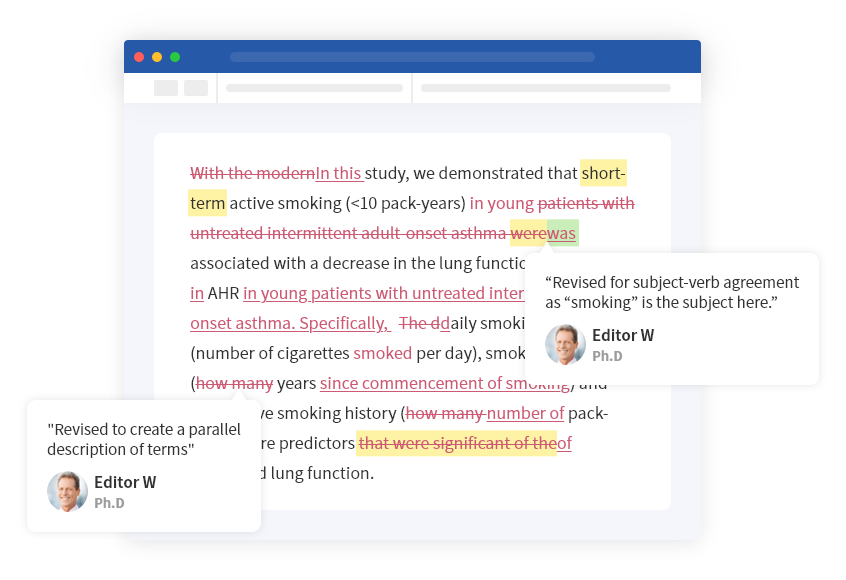
Wordvice Editing & Proofreading Services
Our expert editors correct mistakes in grammar, punctuation, and spelling and improve the vocabulary, readability, and expression of your writing. Choose the editing service that works best for the needs of your document.
Academic subject experts correct vocabulary and enhance the flow and impact of your writing so you can submit your research paper with confidence.
$0.044 per word
Experienced admissions editors proofread your application essay and polish your writing, highlighting your strengths to get you into your school of choice.
$0.023 per word
Qualified editors enhance reports, brochures, and other documents to help businesses and professionals produce high-quality writing that will get results.
Editing Services for Writers
Our personal-writing editors improve the flow and expression of your poem, book, blog, or personal essay to make it shine for your target readers.
$0.040 per word
Total Number of Clients
Average Satisfaction Rating
Total Edited Words
Announcements
- English Thesis and Journal Submission Guide
How Our Proofreaders & Editors Improve Your Writing
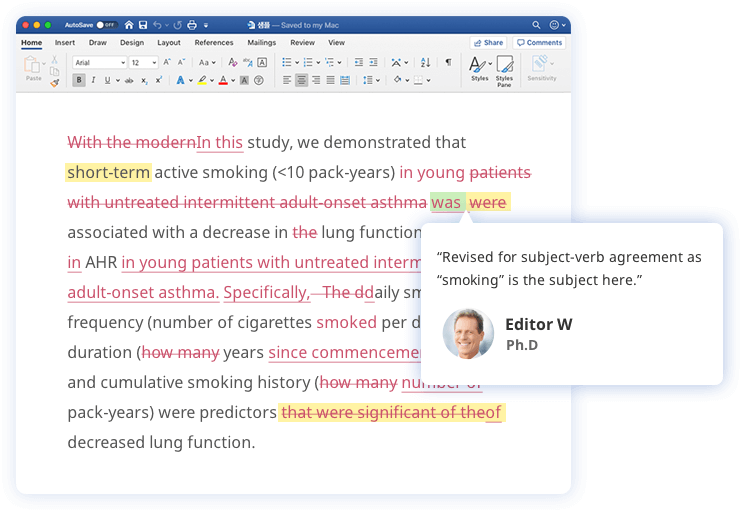
Our editors proofread your work to eliminate errors in grammar, spelling, mechanics, and punctuation. 100% quality guaranteed.

We revise awkward vocabulary and phrasing to strengthen your language and make it more compelling to target readers.

Our editors leave comments about your document to explain their revisions and suggest ways you can improve your writing.
Wordvice Editing & Proofreading Service Stats
Why Choose Wordvice? 100% Satisfaction. Guaranteed.
Wordvice offers high-quality editing and proofreading services . Our experienced editors carefully revise your document, eliminating errors and improving language, style, and organization.
Total Words Edited
Documents Revised
Institutions Supported
Students Served
Researchers Served
Client Reorder Rate
Wordvice Editing & Proofreading Service Editors
Who Are Our Professional Editors?
Wordvice works with the most qualified editors with years of language editing and proofreading experience. We have over 500 professional editors with PhDs and advanced degrees and subject expertise in nearly 2,000 academic fields, and our order management system will match you to the best fit considering your field and the document you submit.

Ph.D , Biological Engineering Massachusetts Institute of Technology
Anatomy, Anthropology, Applied Economics, Applied Mathematics, Biochemistry, Bioinformatics, Biomedical Engineering, Biophysics, Biotechnology, Cell Biology, and more

Ph.D , Energy Engineering University of Kentucky
Anthropology, Cultural Anthropology, Medical Anthropology, and more

Ph.D , Molecular and Cell Biology University of California, Berkeley
Cell Biology, Molecular Biology, Microbiology, Oncology, and more

Master's , Energy Engineering KTH Royal Institute of Technology
Electrical Engineering, Applied Physics, Computer Engineering, and more

Master's , Social sciences University of Chicago
Anthropology, Political Science, Psychology, Sociology, and more

Master's , Philosophy KU Leuven
Continental Philosophy, Business Economics, Computer Science & Mathematics, Engineering & Technology, Social sciences, and more

Ph.D , Music University of North Carolina at Greensboro
Performing Arts, Music, Art & Humanities, Religion, Theology and more

Master's , Theology Franciscan University of Steubenville
Theology, Philosophy, Anthropology, Art & Humanities, Social Sciences, and more
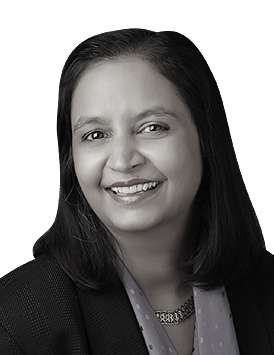
Ph.D , JD (Juris Doctorate) University of Michigan Law School
History, American History, and more

Master's , Higher Education Messiah College
Language & Literature, English Studies, Grammar, Composition Studies, Rhetoric, Semantics, Syntax, Usage, Word Usage, Business & Economcics, Social Studies, and more

Ph.D , History The Ohio State University
Art and humanities, Social sciences, and more

Ph.D , Sociology Brandeis University
Sociology, Medical Sociology, Public Health, Diability Studies, Assisive Technology, Art&Humanities, Engineering & Technology, Medicine,and more

Ph.D , Communication University of Michigan
Sociology, Social Research,Communication, Media, Marketing, Media Studies, Television and Film Studies, Radio Studies, Indigenous Studies, Analytical Sociology, Applied Sociology, Social Policy, Media Policy, Community-Based Research, Action Research, Public Health, Humanities, Digital Humanities, Feminist Theory, Queer Theory, Women's Studies, Gender Studies, Survey Research, Social Experiments, Science and Technology Studies, and more
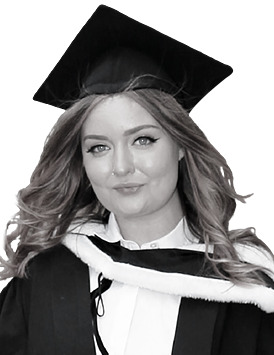
Master's , Gender, Feminist, and Women's Studies York University
Gender & Sexuality Studies, History, Languages & Literature, Performing Arts, VIsual Arts, Anthropology, Political Science, Sociology, and more

Ph.D , Political Science Yale University
Education, Public Administration, Art & Humanities, Social Sciences, Business & Economics, and more

Master's , Communication Wake Forest University
Sociology, Conflict Theory, Communication, Psychology, Leadership, Business, Economics, Finance, and more

Ph.D , Law George Washington University Law School
Business & Economics, Business Management, Marketing, Biosciences, Engineering & Technology, Social Sciences, and more
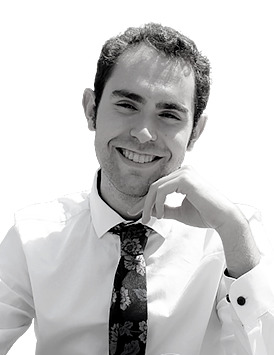
Master's , Bioscience Durham University
Molecular Biology, Cell Biology, Endocrinology, Genetics, Human Biology, Immunology, Microbiology, Physiology, Virology, and more

Ph.D , Cell Biology Claude Bernard
Cell Biology, Cancer Biology, Translational Research, Biochemistry, Genetic, Epigenetic, Physiology

Master's , Medicine Nair Hospital Dental College
Denistry, Periodontics, Orthodontics, Prosthodontics, Oral and Maxillofacial Surgery, Dental Hygiene and Epidemiology, Dental Surgery, Endodontics, Implantology, and more

Ph.D , Material Science The Open University
Chemistry, Organic Chemistry, Earth Sciences, Planetary Science, Corrosion and protection, Biosciences, and more
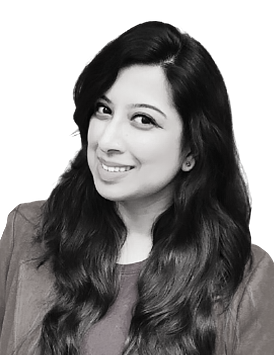
Master's , Aerospace Engineering University of Illinois at Urbana-Champaign
Mechanical Engineering, Aerospace Engineering, Heat Transfer, Thermodynamics, Fluid Mechanics, Computational Sciences, Industrial Engineering, Automotive Engineering, Biomechanical Engineering, Civil Engineering, and more

Ph.D , Engineering University of Cambridge
Chemistry, Physics, Materials Science & Engineering, Physical Sciences, and more

Master's , Computer Science Georgia Institute of Technology
Applied Mathematics, Computer Science, Statistics, Mechanical Engineering, Electrical Engineering, Civil Engineering, Bioinformatics, and more
How Our Editing & Proofreading Service Works
Simply choose your service and upload your document. We carefully select the best editor for the job based on your field and the nature of the document; they receive the document and your details/instructions immediately and get to work. Upload your document day or night, 365 days a year, with delivery as fast as 9 hours.

Get an Instant Price Quote
Select the document type and enter your word count to get a quote.

Upload Your Paper
Tell us about your document, including the subject area and purpose of your paper, so we can match your work to the most appropriate editor. Upload your document and pay for your order.

Receive Your Revised Document
Download your edited document, guaranteed within the requested delivery time.

Published Works

Successful Admissions

Get your instant quote!
*Apply ACADEMIC50US for a 50% discount (up to $50).
Sign in to Wordvice
Remember Me

Editors for Students Editing and Proofreading Services
Our dedicated student editing service ensures that your academic excellence is backed by professional editing. Make sure your writing not only meets university standards but also receives the expertise and attention it deserves from experienced academic editors for students who specialize in refining essays, theses, and papers.
Try before you buy.
All services are available 24/7.
Fast-Track Your Academic Goals with Professional Editing and Proofreading
Whether you're aiming for a compelling admissions essay or a flawless final paper , our team of professional academic editors for students is here to help you shine in the competitive academic landscape.
With extensive experience working on papers in various disciplines, including the social sciences, our editing services ensure that your writing meets the highest academic standards and leaves a lasting impression.
Professional editing and proofreading are now even more affordable!
Unlock the potential of your documents with Scribendi's exclusive 10% student discount. Our team of expert academic editors for students is dedicated to elevating your essays, research papers, assignments, and personal documents.
Enhance your writing effortlessly by using the coupon code provided on our Student Discount page. Seize this limited-time offer to take advantage of professional editing services and ensure your academic work meets the highest standards.
Fix your writing.
- Our team of academic editors for students meticulously checks your spelling and grammar, ensuring your paper is error-free.
- Receive in-depth comments that guide you in improving the structure, clarity, style, and flow of your writing.
- Our professional editors, experienced in academic writing, assist you in expressing your ideas clearly and effectively .
- We adeptly format in-text citations and references according to any style guide you choose, offering comprehensive editing services tailored to the needs of university students.
- Our team of academic editors for students is at your service 24/7 , ensuring we can work on your paper even while you sleep.
- Specializing in last-minute essays , our professional editing services offer fast turnarounds on orders, allowing you to meet tight deadlines with confidence. Trust our experienced editors to assist you in refining your academic writing promptly and efficiently.
Get better results.
- With our professional academic editors for students, elevate your grades and increase your chances of acceptance into your dream college through meticulous editing and proofreading.
- Ensure your ideas are evaluated on merit , not spelling and grammar mistakes.
- The detailed feedback you receive from our experienced editors will not only improve your current essay but also enhance your essay writing skills for future academic endeavors.
Trust the pros.
- With a rich history of over 20 years in the academic editing and proofreading business, our dedicated team of academic editors for students brings a wealth of experience to enhance your writing.
- Our top-of-the-line quality assurance process guarantees high-quality editing for essays, theses, and other academic papers, ensuring excellence every time.
Scribendi's Statement of Ethics: We care about academic integrity. We do not write, rewrite, or paraphrase students' work.
For additional assistance, explore our FAQ page designed specifically for students seeking professional academic editing services.
Still have questions? Feel free to contact our customer relationship specialists today for personalized support and guidance tailored to your academic writing needs.
Select a service to get an instant quote.
Essay proofreading.
Perfect your essays with our specialized Essay Proofreading service. Our professional editors, with years of experience, meticulously review your documents, addressing grammar, spelling, and overall clarity issues. Whether it's a personal statement, a research paper, or any academic essay, our proofreading services, tailored for various subject areas, include a sample edit to showcase our expertise. With our dedicated Essay Proofreading service, you can refine your writing to meet university standards and impress your audience.
Essay Editing
Elevate your academic writing with our professional essay editing service designed for college students. Our expert editors refine and perfect your essays, addressing grammar, structure, and overall clarity, ensuring your papers meet the highest standards. Trust our dedicated essay editing service to enhance your writing skills, improve word count precision, and optimize citation accuracy, maximizing your chances of success, especially in crucial areas such as admission essays and test scores.
Admission Essay Editing
Embark on your academic journey with confidence using our premier Admission Essay Editing Service. Our skilled editors, with years of experience, meticulously refine and elevate your college essays, ensuring they stand out in the competitive admission landscape. Count on our editing services to enhance the clarity and impact of your application essays, guiding students along a successful path to university acceptance.
Admission Essay Proofreading
Refine your path to college acceptance with our dedicated Admission Essay Proofreading service. Backed by experienced editors specializing in college application essays, we meticulously polish your writing, ensuring flawless grammar, impeccable style, and enhanced clarity. Elevate your essay to the pinnacle of excellence, positioning yourself as a standout applicant without compromising your unique voice.
Editors for Students FAQ
How much does an academic editor cost.
The cost of our student editing services is designed to accommodate academic budgets while ensuring professional editing for essays, theses, and papers. Our experienced academic editors offer quality proofreading and editing services tailored to university standards. With transparent pricing and the option to choose from various service levels, including essay editing and thesis editing, students receive value for their investment. Explore our professional editing services with the added assurance of positive customer reviews, ensuring a reliable online experience for all your academic writing needs in the social sciences and beyond.
Who can edit my college essay?
Our team of professional academic editors for students is ready to enhance your college essay. With extensive experience working on various academic writing projects, our editors provide expert essay editing and proofreading services. We understand the importance of polished papers for university submissions, and our dedicated team ensures that your writing meets the highest standards. Trust our academic editors to refine your work, addressing not only grammar and structure but also adhering to the specific requirements of the social sciences and other academic disciplines. Benefit from our editing services, backed by positive customer reviews, for a successful college essay.
How do I find a good essay editor?
Finding a good essay editor is crucial for academic success. Look for professional editors for students with extensive experience working on academic papers. Seek services that specialize in essay editing, thesis editing, and proofreading to ensure your writing meets university standards. Check for online platforms with positive customer reviews, indicating a track record of successful academic editing. A good editor not only refines grammar and structure but also understands the nuances of academic writing in various disciplines, including the social sciences. Choose an editing service that aligns with your needs and academic goals for a polished and impactful essay.
How long will it take to review my documents?
The time it takes our professional editors for students to review your document depends on the selected turnaround time and document length. Our goal is to provide a prompt and efficient editing process without compromising quality. You can choose from different turnaround times, including options for expedited editing, to meet your deadlines. Our experienced academic editors ensure a thorough review of your writing, whether it's an essay, thesis, or another academic paper. Check our service details for estimated turnaround times, and feel confident that your work will be edited promptly and professionally, maintaining the high standards required by universities.

Editing and Proofreading
What this handout is about.
This handout provides some tips and strategies for revising your writing. To give you a chance to practice proofreading, we have left seven errors (three spelling errors, two punctuation errors, and two grammatical errors) in the text of this handout. See if you can spot them!
Is editing the same thing as proofreading?
Not exactly. Although many people use the terms interchangeably, editing and proofreading are two different stages of the revision process. Both demand close and careful reading, but they focus on different aspects of the writing and employ different techniques.
Some tips that apply to both editing and proofreading
- Get some distance from the text! It’s hard to edit or proofread a paper that you’ve just finished writing—it’s still to familiar, and you tend to skip over a lot of errors. Put the paper aside for a few hours, days, or weeks. Go for a run. Take a trip to the beach. Clear your head of what you’ve written so you can take a fresh look at the paper and see what is really on the page. Better yet, give the paper to a friend—you can’t get much more distance than that. Someone who is reading the paper for the first time, comes to it with completely fresh eyes.
- Decide which medium lets you proofread most carefully. Some people like to work right at the computer, while others like to sit back with a printed copy that they can mark up as they read.
- Try changing the look of your document. Altering the size, spacing, color, or style of the text may trick your brain into thinking it’s seeing an unfamiliar document, and that can help you get a different perspective on what you’ve written.
- Find a quiet place to work. Don’t try to do your proofreading in front of the TV or while you’re chugging away on the treadmill. Find a place where you can concentrate and avoid distractions.
- If possible, do your editing and proofreading in several short blocks of time. Your concentration may start to wane if you try to proofread the entire text at one time.
- If you’re short on time, you may wish to prioritize. Make sure that you complete the most important editing and proofreading tasks.
Editing is what you begin doing as soon as you finish your first draft. You reread your draft to see, for example, whether the paper is well-organized, the transitions between paragraphs are smooth, and your evidence really backs up your argument. You can edit on several levels:
Have you done everything the assignment requires? Are the claims you make accurate? If it is required to do so, does your paper make an argument? Is the argument complete? Are all of your claims consistent? Have you supported each point with adequate evidence? Is all of the information in your paper relevant to the assignment and/or your overall writing goal? (For additional tips, see our handouts on understanding assignments and developing an argument .)
Overall structure
Does your paper have an appropriate introduction and conclusion? Is your thesis clearly stated in your introduction? Is it clear how each paragraph in the body of your paper is related to your thesis? Are the paragraphs arranged in a logical sequence? Have you made clear transitions between paragraphs? One way to check the structure of your paper is to make a reverse outline of the paper after you have written the first draft. (See our handouts on introductions , conclusions , thesis statements , and transitions .)
Structure within paragraphs
Does each paragraph have a clear topic sentence? Does each paragraph stick to one main idea? Are there any extraneous or missing sentences in any of your paragraphs? (See our handout on paragraph development .)
Have you defined any important terms that might be unclear to your reader? Is the meaning of each sentence clear? (One way to answer this question is to read your paper one sentence at a time, starting at the end and working backwards so that you will not unconsciously fill in content from previous sentences.) Is it clear what each pronoun (he, she, it, they, which, who, this, etc.) refers to? Have you chosen the proper words to express your ideas? Avoid using words you find in the thesaurus that aren’t part of your normal vocabulary; you may misuse them.
Have you used an appropriate tone (formal, informal, persuasive, etc.)? Is your use of gendered language (masculine and feminine pronouns like “he” or “she,” words like “fireman” that contain “man,” and words that some people incorrectly assume apply to only one gender—for example, some people assume “nurse” must refer to a woman) appropriate? Have you varied the length and structure of your sentences? Do you tends to use the passive voice too often? Does your writing contain a lot of unnecessary phrases like “there is,” “there are,” “due to the fact that,” etc.? Do you repeat a strong word (for example, a vivid main verb) unnecessarily? (For tips, see our handouts on style and gender-inclusive language .)
Have you appropriately cited quotes, paraphrases, and ideas you got from sources? Are your citations in the correct format? (See the UNC Libraries citation tutorial for more information.)
As you edit at all of these levels, you will usually make significant revisions to the content and wording of your paper. Keep an eye out for patterns of error; knowing what kinds of problems you tend to have will be helpful, especially if you are editing a large document like a thesis or dissertation. Once you have identified a pattern, you can develop techniques for spotting and correcting future instances of that pattern. For example, if you notice that you often discuss several distinct topics in each paragraph, you can go through your paper and underline the key words in each paragraph, then break the paragraphs up so that each one focuses on just one main idea.
Proofreading
Proofreading is the final stage of the editing process, focusing on surface errors such as misspellings and mistakes in grammar and punctuation. You should proofread only after you have finished all of your other editing revisions.
Why proofread? It’s the content that really matters, right?
Content is important. But like it or not, the way a paper looks affects the way others judge it. When you’ve worked hard to develop and present your ideas, you don’t want careless errors distracting your reader from what you have to say. It’s worth paying attention to the details that help you to make a good impression.
Most people devote only a few minutes to proofreading, hoping to catch any glaring errors that jump out from the page. But a quick and cursory reading, especially after you’ve been working long and hard on a paper, usually misses a lot. It’s better to work with a definite plan that helps you to search systematically for specific kinds of errors.
Sure, this takes a little extra time, but it pays off in the end. If you know that you have an effective way to catch errors when the paper is almost finished, you can worry less about editing while you are writing your first drafts. This makes the entire writing proccess more efficient.
Try to keep the editing and proofreading processes separate. When you are editing an early draft, you don’t want to be bothered with thinking about punctuation, grammar, and spelling. If your worrying about the spelling of a word or the placement of a comma, you’re not focusing on the more important task of developing and connecting ideas.
The proofreading process
You probably already use some of the strategies discussed below. Experiment with different tactics until you find a system that works well for you. The important thing is to make the process systematic and focused so that you catch as many errors as possible in the least amount of time.
- Don’t rely entirely on spelling checkers. These can be useful tools but they are far from foolproof. Spell checkers have a limited dictionary, so some words that show up as misspelled may really just not be in their memory. In addition, spell checkers will not catch misspellings that form another valid word. For example, if you type “your” instead of “you’re,” “to” instead of “too,” or “there” instead of “their,” the spell checker won’t catch the error.
- Grammar checkers can be even more problematic. These programs work with a limited number of rules, so they can’t identify every error and often make mistakes. They also fail to give thorough explanations to help you understand why a sentence should be revised. You may want to use a grammar checker to help you identify potential run-on sentences or too-frequent use of the passive voice, but you need to be able to evaluate the feedback it provides.
- Proofread for only one kind of error at a time. If you try to identify and revise too many things at once, you risk losing focus, and your proofreading will be less effective. It’s easier to catch grammar errors if you aren’t checking punctuation and spelling at the same time. In addition, some of the techniques that work well for spotting one kind of mistake won’t catch others.
- Read slow, and read every word. Try reading out loud , which forces you to say each word and also lets you hear how the words sound together. When you read silently or too quickly, you may skip over errors or make unconscious corrections.
- Separate the text into individual sentences. This is another technique to help you to read every sentence carefully. Simply press the return key after every period so that every line begins a new sentence. Then read each sentence separately, looking for grammar, punctuation, or spelling errors. If you’re working with a printed copy, try using an opaque object like a ruler or a piece of paper to isolate the line you’re working on.
- Circle every punctuation mark. This forces you to look at each one. As you circle, ask yourself if the punctuation is correct.
- Read the paper backwards. This technique is helpful for checking spelling. Start with the last word on the last page and work your way back to the beginning, reading each word separately. Because content, punctuation, and grammar won’t make any sense, your focus will be entirely on the spelling of each word. You can also read backwards sentence by sentence to check grammar; this will help you avoid becoming distracted by content issues.
- Proofreading is a learning process. You’re not just looking for errors that you recognize; you’re also learning to recognize and correct new errors. This is where handbooks and dictionaries come in. Keep the ones you find helpful close at hand as you proofread.
- Ignorance may be bliss, but it won’t make you a better proofreader. You’ll often find things that don’t seem quite right to you, but you may not be quite sure what’s wrong either. A word looks like it might be misspelled, but the spell checker didn’t catch it. You think you need a comma between two words, but you’re not sure why. Should you use “that” instead of “which”? If you’re not sure about something, look it up.
- The proofreading process becomes more efficient as you develop and practice a systematic strategy. You’ll learn to identify the specific areas of your own writing that need careful attention, and knowing that you have a sound method for finding errors will help you to focus more on developing your ideas while you are drafting the paper.
Think you’ve got it?
Then give it a try, if you haven’t already! This handout contains seven errors our proofreader should have caught: three spelling errors, two punctuation errors, and two grammatical errors. Try to find them, and then check a version of this page with the errors marked in red to see if you’re a proofreading star.
Works consulted
We consulted these works while writing this handout. This is not a comprehensive list of resources on the handout’s topic, and we encourage you to do your own research to find additional publications. Please do not use this list as a model for the format of your own reference list, as it may not match the citation style you are using. For guidance on formatting citations, please see the UNC Libraries citation tutorial . We revise these tips periodically and welcome feedback.
Especially for non-native speakers of English:
Ascher, Allen. 2006. Think About Editing: An ESL Guide for the Harbrace Handbooks . Boston: Wadsworth Cengage Learning.
Lane, Janet, and Ellen Lange. 2012. Writing Clearly: Grammar for Editing , 3rd ed. Boston: Heinle.
For everyone:
Einsohn, Amy. 2011. The Copyeditor’s Handbook: A Guide for Book Publishing and Corporate Communications , 3rd ed. Berkeley: University of California Press.
Lanham, Richard A. 2006. Revising Prose , 5th ed. New York: Pearson Longman.
Tarshis, Barry. 1998. How to Be Your Own Best Editor: The Toolkit for Everyone Who Writes . New York: Three Rivers Press.
You may reproduce it for non-commercial use if you use the entire handout and attribute the source: The Writing Center, University of North Carolina at Chapel Hill
Make a Gift
- Link to facebook
- Link to linkedin
- Link to twitter
- Link to youtube
Academic Proofreading And Editing
Whether you’re writing a thesis, research paper, or PhD proposal, Proofed’s academic proofreading and editing services will help ensure your writing reads smoothly and your ideas are communicated effectively.

Enhance Your Academic Writing
No matter what you’re working on, with Proofed’s academic proofreading and editing services, you can rest assured that your writing will be clear and concise, with a strong academic style and tone.
We can even check references and citations in your work. Because good writing is vital for success in academia, our proofreading and editing services can help you achieve your career goals.

Experienced Academic Editors
Our team includes editors with PhDs and master’s degrees in a wide range of subject areas. We’ve also edited thousands of academic documents so we understand the high standard of writing required in academia and will use our skills and expertise to make your writing the best it can be.
Are You Looking To Publish Your Writing?
Proofed’s academic proofreading service has helped thousands of academics in many fields of study prepare their papers, reports, and articles for publication. Visit our researcher page to learn more about how we can polish your writing, thus increasing your chances of publication.
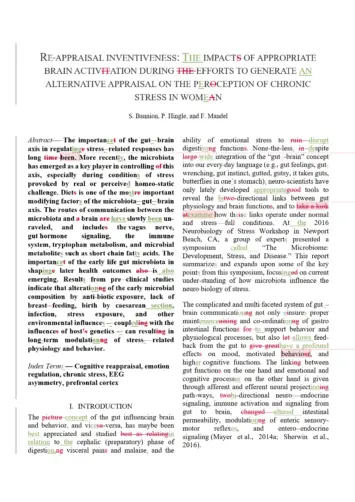
Make sure your writing is the best it can be with our expert English proofreading and editing
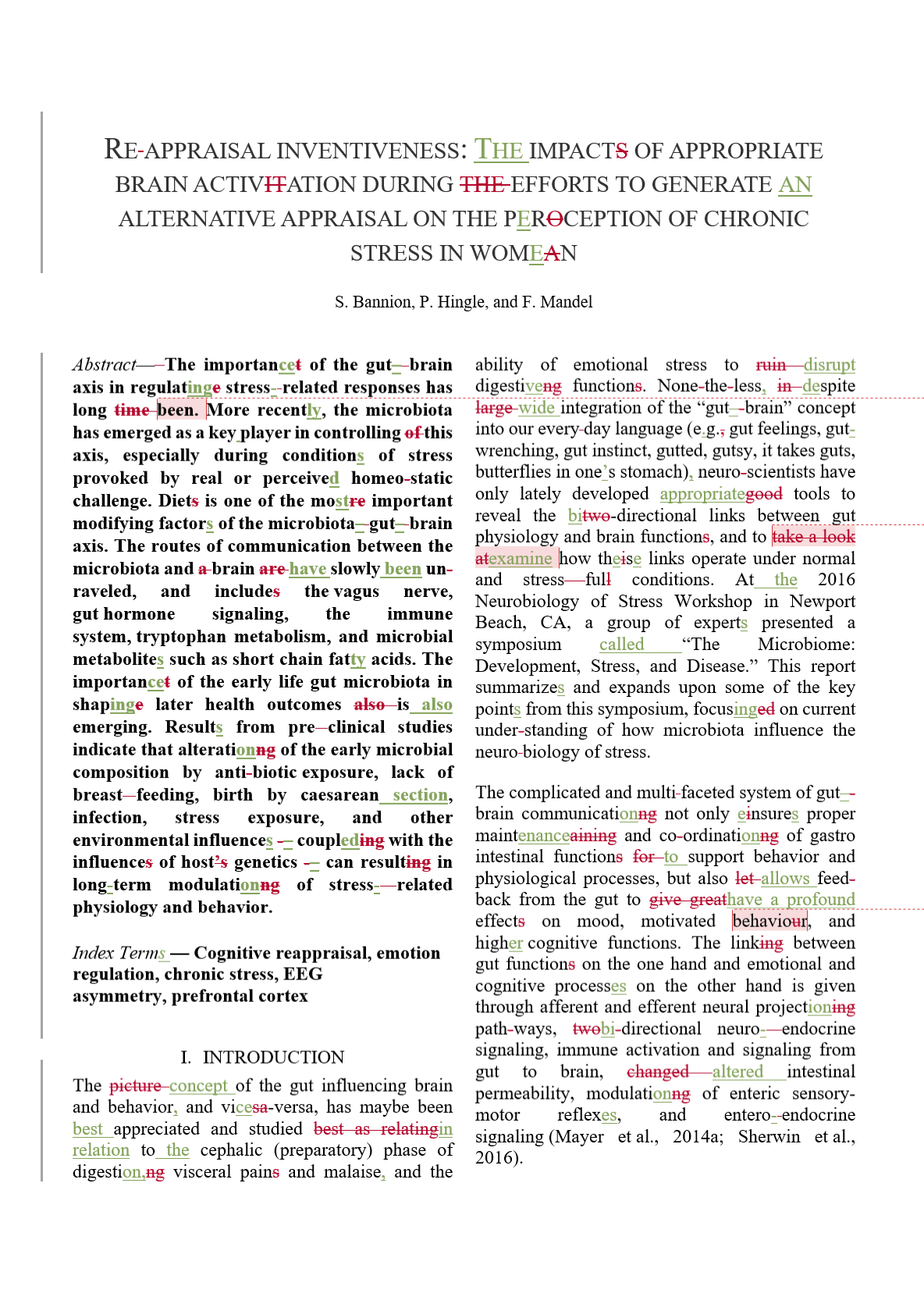
A Dedicated Team Of Expert Editors Working 24/7, 365 Days A Year
We pair your document with an editor who understands your field of study. If you’re happy with the results, let us know, and we’ll make sure the same editor works on all of your documents. That way, you can be sure the proofreading we provide will always meet your standards.

Expert Editor

Highly Educated Editors
Female Editors
Hold Graduate Degree
Qualified In Over
Subject Areas
How We Work With Academics
Lightning-fast delivery.
You’ll never miss a deadline with our speedy services: our Next-Day Guarantee means we’ll return any document up to 8,000 words long within 24 hours.
And if you need a faster turnaround, simply select your desired delivery speed when you submit your document. We have three options
We can also meet custom deadlines! Just let us know what you need.
* For documents up to 8,000 words
** For documents up to 3,000 words
Great Pricing
Our pricing is affordable and transparent – the cost is based on the exact length of your document. Check out our pricing calculator for an instant quote, and rest assured that you’ll receive the highest quality proofreading and editing for the best value on the market.
Referencing Expertise
Our team includes experts in various referencing styles and systems, including AMA, APA, MLA, Chicago, Harvard, Vancouver, and IEEE. No matter what style you’re using, though, we can check that your citations and references are correct and let you know if any information is missing. Visit our referencing page to learn more.
Subject-Matter Experts
Our team includes over 750 professional editors with backgrounds in a wide range of disciplines, so we’ll always match you with the best editor for your writing, whether you need help with a sociology dissertation, handouts for a music theory lecture, or a biology research paper.
24-Hour Support
Our support team is available around the clock to address any concerns or questions you have about your order. This means you’ll never be left in the dark, no matter where you are or what time it is.
We Work With Every Major Format
Our system supports over 15 document formats, making it easy to submit content for proofreading and editing. Click on a file icon below to learn more.
MS Powerpoint
Google Docs
Google Slides
Google Sheets
Illustrator
Select Your Document Type Below To Learn More
Research papers.
Present your findings with pride by having your research paper checked by our expert academic proofreaders.
Journal Articles
Prepare for publication by letting our expert academic proofreaders check your journal article for errors.
Let our expert academic proofreaders help you put the finishing touches on your PhD thesis or dissertation.
Make sure your arguments come across clearly by having your thesis checked by our expert academic proofreaders.
Research Proposals
Enhance your application by letting our expert academic proofreaders check your research proposal for errors.
Instant Quote
You can also upload a document to get an instant quote
Drag & drop your file
or browse your computer
Browse from your device
Drop your file here!
Your file is being uploaded!

Looking For The Perfect Proofreader?
We can help you improve everything from journal articles to theses. Let us show you how!
Places on our 2024 summer school are filling fast. Don’t miss out. Enrol now to avoid disappointment
- 13 Essential Editing Tips to Use in Your Essay Writing

The good student strives constantly to achieve a better essay each time they write one.
It can be a challenge to find ways to keep improving, but one way of making your essays instantly better is effective editing. Editing your essay before you submit it could mean the difference between a good grade and a brilliant one, so it’s worth taking fifteen minutes or so before you send it off just checking through it to make sure that the structure and wording is as good as it can be. In this article, we give you some tips to think about when you’re editing your own writing. Keep these tips alongside you to use as a checklist and you can’t go far wrong!
1. Start by getting the structure right
If you have time, try to leave a bit of time between finishing your essay and starting the editing process. This gives you time to approach it feeling reasonably fresh; if you edit immediately after spending a long time on something, you might find that you’re so close to it that you’re unable to spot errors. When you do sit down to look through it, start by looking at its structure. Think about the overarching shape of the argument you’re developing and check that the points you’ve made help build your essay towards a logical conclusion. You may have written an essay with the points in order of when they occurred to you, but is this really the most sensible order? Does one point follow logically on from the other? Would it make the essay more interesting to include a certain point near the beginning to tease the reader, or are you revealing too much in the opening, meaning it would be better to move some points nearer the end? These are just a few of the ways in which it might be possible to improve the structure, so it helps to keep in mind your overall argument and ensure your structure puts it across as effectively as possible. With word processors now the primary means of writing essays, it couldn’t be easier to rearrange paragraphs into a more logical structure by dragging and dropping or cutting and pasting paragraphs. If you do this, don’t forget to reread the essay to ensure that the wording works with this new order, otherwise you may end up with a sentence leading into the wrong paragraph.
2. Prune long sentences and paragraphs
Whether you’ve exceeded your word count or not, long sentences and paragraphs should be edited because they can be trickier to read, and risk being boring or hard to follow. Try, therefore, to keep sentences to a maximum of two or three clauses (or segments). Avoid long paragraphs by starting a new one if you find one getting longer than three or four sentences: a wall of text can be off-putting to the reader. Leave a space between paragraphs if you’re typing your essay, as we’re doing in this article. Another way of keeping sentences to a reasonable length is to go through what you’ve written and tighten up the wording. If you find yourself writing long sentences, try to look for ways in which you can reword them to express what you’re trying to say more concisely. You’ll probably find numerous instances of phrases that take many words to say what could be said in two or three.
3. Keep overly complicated language in check
It’s going to look obvious if you’ve had a thesaurus next to you while writing, just so that you can replace all the simple words with more complicated ones. The thing is, it doesn’t always make you look intelligent; you may, for instance, inadvertently choose the wrong synonym , not realising that even close synonyms can have subtly different meanings or connotations. Sometimes using big words where simple ones would suffice can seem contrived and pompous; aim for clear, concise language to avoid being verbose or pretentious. That’s not to say you shouldn’t use more complex words at all – just choose the situation carefully and don’t overdo it.
4. Watch for repetition of ideas and words
It’s easy to repeat yourself without realising it when you’re writing, but the editing process is there to enable you to spot this before your teacher or lecturer sees it. As you read through your essay, keep a look out for ideas you’ve repeated and delete whichever repetitions add nothing to your essay (don’t forget that the first instance of the idea may not be the most appropriate place for it, so consider which is the best moment to introduce it and delete the other mentions). On a related note, look out for instances in which you’ve laboured the point. Going on about a particular point for too long can actually undermine the strength of your argument, because it makes you look as though you’re desperately grappling to find supporting facts; sometimes a simple, clear statement with a brief piece of evidence to back it up is all that’s needed. You should be equally wary of repetition of words within the same sentence or paragraph. It’s fine to repeat common words such as “the”, obviously, but it’s best to avoid using the same connecting words, such as “also”, more than once in the same paragraph. Rephrase using alternative expressions, such as “what’s more”. More unusual words should be used just once per paragraph – words such as “unavoidable”, for example – unless it’s for emphasis.
5. Don’t rely on the spellcheck
It’s a tip we’ve told you before, but it’s worth repeating because it’s very important! The spellcheck will not pick up every single error in your essay. It may highlight some typos and misspellings, but it won’t tell you if you’ve inadvertently used the wrong word altogether. For example, you may have meant to write the word “from”, but accidentally mistyped it as “form” – which is still a word, so the spellchecker won’t register it. But it’s not the word you meant to write.
6. Spotting typos
It’s said that if you read through your work backwards, you’re more likely to spot typos. This is probably because it’s giving you a new perspective on what you’ve written, making it easier to spot glaring errors than if you read through it in the order in which you wrote it and in which you know what to expect. So, start with the last sentence and keep going in reverse order until you get to the beginning of your essay. Another tip is to print out your essay and take a red pen to it, circling or underlining all the errors and then correcting them on the computer later. It’s often easier to read a document from a printed version, and it also means that you can follow what you’re doing by touching each word with the end of your pencil to make sure you’re not skimming over any errors.
7. Omit unnecessary words and eradicate weasel words
Without even realising it, you’ve probably used plenty of unnecessary words in your writing – words that add to the word count without adding to the meaning – and you’ll find that your writing works just as well without them. An example is the word “very”, which almost always adds nothing to what you’re trying to say. As Mark Twain said , “Substitute ‘damn’ every time you’re inclined to write ‘very’; your editor will delete it and the writing will be just as it should be”. Weasel words are worse, as they are used to hide weak or objectionable arguments. A study of Wikipedia found that these tend to fall into three different categories: numerical vagueness (such as “many people say” without specifying who these people are), the use of the passive voice to distance the writer from what they’re saying (“it is often said”, for example, without saying by whom it is often said), and the use of adverbs designed to soften a point (such as “probably”). Look out for these in your own writing and rephrase to remove them; they are disingenuous and your essay will be stronger without them.
8. Remove tautologies
A tautology is a stylistic error involving redundant words, in this case the use of two consecutive words that mean the same thing, such as “the big giant” (referring simply to a “giant” would have been sufficient to convey the meaning). Students often use them when they’re trying to make their writing wordier, not realising that they simply make their writing worse.
9. Watch the commas
People tend either to put too many commas into a sentence, or too few. Too many, and the sentence sounds broken and odd; too few, and the reader has to read the sentence several times to figure out what you’re trying to say, because it comes out in a long, jumbled mess. The secret is to put commas in where you would naturally pause when speaking aloud. If it helps, try reading your writing aloud to see if it flows. Where you would pause for slightly longer, a semi-colon might be more appropriate than a comma. Use a semi-colon to connect two independent clauses that would work as two separate sentences.
10. Consistent spelling
Some words have more than one correct spelling, and the important thing is to be consistent with which one you use. You could, if you wanted to make your life a little easier, delve into the settings on your word processor and manipulate the spellcheck so that it highlights the version you decided against – or even autocorrects to the right version. If you’re writing in the UK, ensure that your word processor’s default language is set to UK English so that you don’t end up inadvertently correcting English spellings to US ones (“colour” to “color”, for example).
11. Get rid of exclamation marks and ellipses
In virtually every case, you don’t need to use an exclamation mark, and – at least in academic writing – your use of one may result in your writing not being taken quite so seriously. Only use them in exceptional circumstances when you really want to convey a feeling of surprise or outrage. Ellipses (“…”) should also be avoided except when you’re indicating the truncation of a quote from another writer (that is, where you left a bit out).
12. Attribute quotations
Quotations from authors or academic writers should be attributed to them. As you read through your essay, keep a look out for any quotations you’ve mentioned and make sure that you say where they’re from. If you’re writing an essay for university, a footnote would be an appropriate way of citing another writer. If you are using footnotes, this gives an extra area on which to focus your editing skills; ensure that all footnotes are consistently formatted, and don’t forget to put a bibliography containing all the books you’ve used at the end.
13. Consistent formatting
The appearance of your essay matters, too – and the formatting should not be neglected when you’re in editing mode. This means being consistent with your use of fonts, using italics or underline for emphasis rather than using them interchangeably, ensuring that the spacing between lines is consistent throughout, and other such minor aesthetic points. This may not sound very important, but consistent formatting helps your essay look professional; if you’ve used different fonts or line spacing or anything like that, your essay will look a mess even if what you’ve said in it is good. You could make use of the pre-populated formatting options in your word processor to ensure consistency throughout, with header 1 for the title, header 2 for subheadings and ‘normal text’ for the body of the document. If you find that there are too many things on this list to think about in one go when you’re reading through your essay, you could read through it several times looking out for different things each time. All this may seem a lot to think about when you’ve already put in so much effort to write the essay in the first place, but trust us: it will pay off with a sleek and polished piece.
What are your chances of acceptance?
Calculate for all schools, your chance of acceptance.
Your chancing factors
Extracurriculars.
15 Tips for Writing, Proofreading, and Editing Your College Essay
What’s covered:, our checklist for writing, proofreading, and editing your essay, where to get your college essays edited.
Your college essay is more than just a writing assignment—it’s your biggest opportunity to showcase the person behind your GPA, test scores, and extracurricular activities. In many ways, it’s the best chance you have to present yourself as a living, breathing, and thoughtful individual to the admissions committee.
Unlike test scores, which can feel impersonal, a well-crafted essay brings color to your application, offering a glimpse into your passions, personality, and potential. Whether you’re an aspiring engineer or an artist, your college essay can set you apart, making it essential that you give it your best.
1. Does the essay address the selected topic or prompt?
Focus on responding directly and thoughtfully to the prompt. If the question asks about your reasons for choosing a specific program or your future aspirations, ensure that your essay revolves around these themes. Tailor your narrative to the prompt, using personal experiences and reflections that reinforce your points.
- Respond directly to the prompt: It’s imperative that you thoughtfully craft your responses so that the exact themes in the prompt are directly addressed. Each essay has a specific prompt that serves a specific purpose, and your response should be tailored in a way that meets that objective.
- Focus: Regardless of what the prompt is about—be it personal experiences, academic achievements, or an opinion on an issue—you must keep the focus of the response on the topic of the prompt .
2. Is the college essay well organized?
An essay with a clear structure is easier to follow and is more impactful. Consider organizing your story chronologically, or use a thematic approach to convey your message. Each paragraph should transition smoothly to the next, maintaining a natural flow of ideas. A well-organized essay is not only easier for the reader to follow, but it can also aid your narrative flow. Logically structured essays can guide the reader through complex and hectic sequences of events in your essay. There are some key factors involved in good structuring:
- A strong hook: Start with a sentence or a paragraph that can grab the attention of the reader. For example, consider using a vivid description of an event to do this.
- Maintain a thematic structure: Maintaining a thematic structure involves organizing your response around a central theme, allowing you to connect diverse points of your essay into a cohesive centralized response.
- Transitioning: Each paragraph should clearly flow into the next, maintaining continuity and coherence in narrative.
3. Include supporting details, examples, and anecdotes.
Enhance your narrative with specific details, vivid examples, and engaging anecdotes. This approach brings your story to life, making it more compelling and relatable. It helps the reader visualize your experiences and understand your perspectives.
4. Show your voice and personality.
Does your personality come through? Does your essay sound like you? Since this is a reflection of you, your essay needs to show who you are.
For example, avoid using vocabulary you wouldn’t normally use—such as “utilize” in place of “use”—because you may come off as phony or disingenuous, and that won’t impress colleges.
5. Does your essay show that you’re a good candidate for admission?
Your essay should demonstrate not only your academic strengths. but also the ways in which your personal qualities align with the specific character and values of the school you’re applying to . While attributes like intelligence and collaboration are universally valued, tailor your essay to reflect aspects that are uniquely esteemed at each particular institution.
For instance, if you’re applying to Dartmouth, you might emphasize your appreciation for, and alignment with, the school’s strong sense of tradition and community. This approach shows a deeper understanding of and a genuine connection to the school, beyond its surface-level attributes.
6. Do you stick to the topic?
Your essay should focus on the topic at hand, weaving your insights, experiences, and perspectives into a cohesive narrative, rather than a disjointed list of thoughts or accomplishments. It’s important to avoid straying into irrelevant details that don’t support your main theme. Instead of simply listing achievements or experiences, integrate them into a narrative that highlights your development, insights, or learning journey.
Example with tangent:
“My interest in performing arts began when I was five. That was also the year I lost my first tooth, which set off a whole year of ‘firsts.’ My first play was The Sound of Music.”
Revised example:
“My interest in performing arts began when I was five, marked by my debut performance in ‘The Sound of Music.’ This experience was the first step in my journey of exploring and loving the stage.”
7. Align your response with the prompt.
Before finalizing your essay, revisit the prompt. Have you addressed all aspects of the question? Make sure your essay aligns with the prompt’s requirements, both in content and spirit. Familiarize yourself with common college essay archetypes, such as the Extracurricular Essay, Diversity Essay, Community Essay, “Why This Major” Essay (and a variant for those who are undecided), and “Why This College” Essay. We have specific guides for each, offering tailored advice and examples:
- Extracurricular Essay Guide
- Diversity Essay Guide
- Community Essay Guide
- “Why This Major” Essay Guide
- “Why This College” Essay Guide
- Overcoming Challenges Essay Guide
- Political/Global Issues Essay Guide
While these guides provide a framework for each archetype, respectively, remember to infuse your voice and unique experiences into your essay to stand out!
8. Do you vary your sentence structure?
Varying sentence structure, including the length of sentences, is crucial to keep your writing dynamic and engaging. A mix of short, punchy sentences and longer, more descriptive ones can create a rhythm that makes your essay more enjoyable to read. This variation helps maintain the reader’s interest and allows for more nuanced expression.
Original example with monotonous structure:
“I had been waiting for the right time to broach the topic of her health problem, which had been weighing on my mind heavily ever since I first heard about it. I had gone through something similar, and I thought sharing my experience might help.”
Revised example illustrating varied structure:
“I waited for the right moment to discuss her health. The issue had occupied my thoughts for weeks. Having faced similar challenges, I felt that sharing my experience might offer her some comfort.”
In this revised example, the sentences vary in length and structure, moving from shorter, more impactful statements to longer, more descriptive ones. This variation helps to keep the reader’s attention and allows for a more engaging narrative flow.
9. Revisit your essay after a break.
- Give yourself time: After completing a draft of your essay, step away from it for a day or two. This break can clear your mind and reduce your attachment to specific phrases or ideas.
- Fresh perspective: When you come back to your essay, you’ll likely find that you can view your work with fresh eyes. This distance can help you spot inconsistencies, unclear passages, or stylistic issues that you might have missed earlier.
- Enhanced objectivity: Distance not only aids in identifying grammatical errors or typos, but it also allows you to assess the effectiveness of your argument or narrative more objectively. Does the essay really convey what you intended? Are there better examples or stronger pieces of evidence you could use?
- Refine and polish: Use this opportunity to fine-tune your language, adjust the flow, and ensure that your essay truly reflects your voice and message.
Incorporating this tip into your writing process can significantly improve the quality and effectiveness of your college essay.
10. Choose an ideal writing environment.
By identifying and consistently utilizing an ideal writing environment, you can enhance both the enjoyment and effectiveness of your essay-writing process.
- Discover your productive spaces: Different environments can dramatically affect your ability to think and write effectively. Some people find inspiration in the quiet of a library or their room, while others thrive in the lively atmosphere of a coffee shop or park.
- Experiment with settings: If you’re unsure what works best for you, try writing in various places. Notice how each setting affects your concentration, creativity, and mood.
- Consider comfort and distractions: Make sure your chosen spot is comfortable enough for long writing sessions, but also free from distracting elements that could hinder your focus.
- Time of day matters: Pay attention to the time of day when you’re most productive. Some write best in the early morning’s tranquility, while others find their creative peak during nighttime hours.
11. Are all words spelled correctly?
While spell checkers are a helpful tool, they aren’t infallible. It’s crucial to read over your essay meticulously, possibly even aloud, to catch any spelling errors. Reading aloud can help you notice mistakes that your eyes might skip over when reading silently. Be particularly attentive to words that spellcheck might not catch, such as proper nouns, technical jargon, or homophones (e.g., “there” vs. “their”). Attention to detail in spelling reflects your care and precision, both of which are qualities that admissions committees value.
12. Do you use proper punctuation and capitalization?
Correct punctuation and capitalization are key to conveying your message clearly and professionally . A common mistake in writing is the misuse of commas, particularly in complex sentences.
Example of a misused comma:
Incorrect: “I had an epiphany, I was using commas incorrectly.”
In this example, the comma is used incorrectly to join two independent clauses. This is known as a comma splice. It creates a run-on sentence, which can confuse the reader and disrupt the flow of your writing.
Corrected versions:
Correct: “I had an epiphany: I was using commas incorrectly.”
Correct: “I had an epiphany; I was using commas incorrectly.”
Correct: “I had an epiphany—I was using commas incorrectly.”
Correct: “I had an epiphany. I was using commas incorrectly.”
The corrections separate the two clauses with more appropriate punctuation. Colons, semicolons, em dashes, and periods can all be used in this context, though periods may create awkwardly short sentences.
These punctuation choices are appropriate because the second clause explains or provides an example of the first, creating a clear and effective sentence structure. The correct use of punctuation helps maintain the clarity and coherence of your writing, ensuring that your ideas are communicated effectively.
13. Do you abide by the word count?
Staying within the word count is crucial in demonstrating your ability to communicate ideas concisely and effectively. Here are some strategies to help reduce your word count if you find yourself going over the prescribed limits:
- Eliminate repetitive statements: Avoid saying the same thing in different ways. Focus on presenting each idea clearly and concisely.
- Use adjectives judiciously: While descriptive words can add detail, using too many can make your writing feel cluttered and overwrought. Choose adjectives that add real value.
- Remove unnecessary details: If a detail doesn’t support or enhance your main point, consider cutting it. Focus on what’s essential to your narrative or argument.
- Shorten long sentences: Long, run-on sentences can be hard to follow and often contain unnecessary words. Reading your essay aloud can help you identify sentences that are too lengthy or cumbersome. If you’re out of breath before finishing a sentence, it’s likely too long.
- Ensure each sentence adds something new: Every sentence should provide new information or insight. Avoid filler or redundant sentences that don’t contribute to your overall message.
14. Proofread meticulously.
Implementing a thorough and methodical proofreading process can significantly elevate the quality of your essay, ensuring that it’s free of errors and flows smoothly.
- Detailed review: After addressing bigger structural and content issues, focus on proofreading for grammar, spelling, and punctuation errors. This step is crucial for polishing your essay and making sure it’s presented professionally.
- Different techniques: Employ various techniques to catch mistakes. For example, read your essay backward, starting from the last sentence and working your way to the beginning. This method can help you focus on individual sentences and words, rather than getting caught up in the content.
- Read aloud: As mentioned before, reading your essay aloud is another effective technique. Hearing the words can help identify awkward phrasing, run-on sentences, and other issues that might not be as obvious when reading silently.
15. Utilize external feedback.
While self-editing is crucial, external feedback can provide new perspectives and ideas that enhance your writing in unexpected ways. This collaborative process can help you keep your essay error-free and can also help make it resonate with a broader audience.
- Fresh perspectives: Have a trusted teacher, mentor, peer, or family member review your drafts. Each person can offer unique insights and perspectives on your essay’s content, structure, and style.
- Identify blind spots: We often become too close to our writing to see its flaws or areas that might be unclear to others. External reviewers can help identify these blind spots.
- Constructive criticism: Encourage your reviewers to provide honest, constructive feedback. While it’s important to stay true to your voice and story, be open to suggestions that could strengthen your essay.
- Diverse viewpoints: Different people will focus on different aspects of your writing. For example, a teacher might concentrate on your essay’s structure and academic tone, while a peer might provide insights into how engaging and relatable your narrative is.
- Incorporate feedback judiciously: Use the feedback to refine your essay, but remember that the final decision on any changes rests with you. It’s your story and your voice that ultimately need to come through clearly.
When it comes to refining your college essays, getting external feedback is crucial. Our free Peer Essay Review tool allows you to receive constructive criticism from other students, providing fresh perspectives that can help you see your work in a new light. This peer review process is invaluable and can help you both identify areas for improvement and gain different viewpoints on your writing.
For more tailored expert advice, consider the guidance of a CollegeVine advisor . Our advisors, experienced in the college admissions process, offer specialized reviews to enhance your essays. Their insights into what top schools are looking for can elevate your narrative, ensuring that your application stands out. Whether it’s through fine-tuning your grammar or enriching your story’s appeal, our experts’ experience and expertise can significantly increase your likelihood of admission to your dream school!
Related CollegeVine Blog Posts

- Share full article
Advertisement
Supported by
Morgan Spurlock, Documentarian Known for ‘Super Size Me,’ Dies at 53
His 2004 film followed Mr. Spurlock as he ate nothing but McDonald’s for a month. It was nominated for an Oscar, but it later came in for criticism.

By Clay Risen and Remy Tumin
Morgan Spurlock, a documentary filmmaker who gained fame with his Oscar-nominated 2004 film “ Super Size Me ,” which followed him as he ate nothing but McDonald’s for 30 days — but later stepped back from the public eye after admitting to sexual misconduct — died on Thursday in New York City. He was 53.
His brother Craig Spurlock said the cause was complications of cancer.
A self-described attention hound with a keen eye for the absurd, Mr. Spurlock was a playwright and television producer when he rocketed to global attention with “Super Size Me,” an early entry into the genre of gonzo participatory filmmaking that borrowed heavily from the confrontational style of Michael Moore and the up-close-and-personal influences of reality TV, which was then just emerging as a genre.
The film’s approach was straightforward: Mr. Spurlock would eat nothing but McDonald’s food for a month, and if a server at the restaurant offered to “supersize” the meal — that is, to give him the largest portion available for each item — he would accept.
The movie then follows Mr. Spurlock and his ever-patient girlfriend through his 30-day odyssey, splicing in interviews with health experts and visits to his increasingly disturbed physician. At the end of the month, he was 25 pounds heavier, depressed, puffy-faced and experiencing liver dysfunction.
The film, which debuted at the Sundance Film Festival, grossed over $22 million, made Mr. Spurlock a household name, earned him an Academy Award nomination for best documentary and helped spur a sweeping backlash against the fast-food industry — though only temporarily ; today, McDonald’s has 42,000 locations worldwide, its stock is near an all-time high, and 36 percent of Americans eat fast food on any given day.
“His movie,” the critic A.O. Scott wrote in The New York Times , “goes down easy and takes a while to digest, but its message is certainly worth the loss of your appetite.”
The film became a touchstone in American culture. By making himself a part of the story, Mr. Spurlock could be considered a forerunner of TikTok influencers and citizen-journalist YouTubers.
And even after the backlash against fast food subsided, “Super Size Me” remained a staple in high school health classes and a reference point for taking personal responsibility for one’s own diet.
But the film also came in for subsequent criticism. Some people pointed out that Mr. Spurlock refused to release the daily logs tracking his food intake. Health researchers were unable to replicate his results in controlled studies.
And in 2017, he admitted that he had not been sober for more than a week at a time in 30 years — meaning that, in addition to his “McDonald’s only” diet, he was drinking, a fact that he concealed from his doctors and the audience, and that most likely skewed his results.
The admission came in a statement in which he also revealed multiple incidents of sexual misconduct, including an encounter in college that he described as rape, as well as repeated infidelity and the sexual harassment of an assistant at his production company, Warrior Poets.
The statement, which Mr. Spurlock posted on Twitter in 2017, came as he was gearing up for the release of a sequel to the film, “ Super Size Me 2: Holy Chicken! ” on YouTube Red.
He stepped down from his production company, and YouTube dropped the film; it was instead released in 2019 by Samuel Goldwyn Films.
Morgan Valentine Spurlock was born on Nov. 7, 1970, in Parkersburg, W.Va., and grew up in Beckley, W.Va. His father, Ben, owned and operated an auto-repair shop, and his mother, Phyllis (Valentine) Spurlock, was a junior high school and high school guidance counselor.
He later said he grew up as a fan of 1970s and ’80s British comedies like “Monty Python’s Flying Circus” and “Blackadder.”
“I was doing funny walks round the house at 6 or 7,” he told The Independent in 2012 .
He studied film at New York University and received a bachelor’s degree in fine arts in 1993, then began his career as a production assistant on film projects around New York City, beginning with Luc Besson’s “Léon: The Professional” (1994).
He also began writing plays, including “The Phoenix,” which won an award at the 1999 New York International Fringe Festival.
Mr. Spurlock’s first foray onto the screen was a proto-reality show called “I Bet You Will,” which was also one of the first web-only programs. In five-minute segments, he would dare people to do something gross, or humiliating, or both — eating a “worm burrito,” for example — in exchange for a wad of cash.
The show drew millions of viewers, as well as the interest of MTV, which bought the program a few months after it debuted.
During a Thanksgiving visit to his parents in 2002, Mr. Spurlock saw a TV news story about two women who had sued McDonald’s, claiming that the chain had misled them about the nutritional value of its hamburgers, fries and sodas and caused them to gain significant weight.
“A spokesman for McDonald’s came on and said, you can’t link their obesity to our food — our food is healthy, it’s nutritious,” he told The New York Times in 2004 . “I thought, ‘If it’s so good for me, I should be able to eat it every day, right?’”
And thus, “Super Size Me” was born.
Mr. Spurlock took to fame eagerly, and, with his wide smile and handlebar mustache, was hard to miss. He became an unofficial spokesman for the wellness movement, hobnobbed with celebrity chefs — and scrambled to find a new project.
He did not want to lose the momentum generated by “Super Size Me,” nor did he want to go down in history only as the guy who ate a lot of Big Macs.
“I’ll be that guy till I die,” he told The Independent.
A follow-up film, “Where in the World Is Osama Bin Laden?” (2008), was not nearly as well received. Critics assailed him for making light of an international terrorist and for oversimplifying complicated global politics. More bricks were thrown when it emerged that he had put himself at significant personal risk while in Pakistan while his wife was at home with their newborn son.
Eventually, he did get somewhat past the shadow of “Super Size Me”: He teamed up with the actors Jason Bateman and Will Arnett to explore the male grooming industry in “Mansome” (2012) and followed the band One Direction around, resulting in the film “One Direction: This Is Us” (2013).
He produced films by other documentarians, including “The Other F Word” (2011), directed by Andrea Blaugrund Nevins, about punk rockers who became fathers, and “A Brony Tale” (2014), directed by Brent Hodge, about the subculture known as Bronies — adults, mostly men, who love the animated series “My Little Pony: Friendship Is Magic.”
And he continued to make projects that leaned on the participatory style of “Super Size Me.” He created and starred in a series called “30 Days” for FX, in which a person, often Mr. Spurlock himself, would spend about a month embedded in a community much different from his own. One episode saw him spend 25 days in a Virginia jail.
Mr. Spurlock was married three times, to Priscilla Sommer, Alexandra Jamieson and Sara Bernstein; all three marriages ended in divorce. Along with his brother Craig, he is survived by another brother, Barry; his parents; and his sons, Laken and Kallen.
His decision to discuss his sexual past, which came at the height of the #Metoo movement, was met with a mix of praise and criticism. Though many people lauded him for coming forward, critics suggested that he was trying to get ahead of a story that was going to emerge anyway.
All agreed, though, that the decision came with consequences: “Career death,” The Washington Post declared it in 2022 , noting that the once-ubiquitous Mr. Spurlock had largely disappeared.
Clay Risen is a Times reporter on the Obituaries desk. More about Clay Risen
Remy Tumin is a reporter for The Times covering breaking news and other topics. More about Remy Tumin

IMAGES
VIDEO
COMMENTS
Developmental editing (i.e. content editing, substantive editing) This is the first step of the editing process and applies to very early drafts. The editor helps you structure your ideas, decide what story to tell and find direction for your writing. No. This kind of editing involves heavy rewriting and restructuring. Our editors cannot help ...
Relax, focus, write your next masterpiece... Writing presumes more than simply laying out words on a paper. Typely helps you get in the mood and keeps you focused, immersed and ready to write your story. Whether you need a distraction-free environment, some chill relaxing sounds or a pomodoro timer to manage your time we got you covered.
Free proofreading tool. With QuillBot, you have the best free proofreading tool in your pocket, on your browser, or in Word whenever you need it.. Writing is a lot of work, and doing it well means revising and revising again. For writers with high standards in every genre and field, online proofreading is an invaluable resource—a must-have.
Get expert help from Scribbr's academic editors, who will proofread and edit your essay, paper, or dissertation to perfection. Proofreading Services. ... The Editor, Elizabeth, helped me to improve my English only in 3 days, while the contract is for seven days—rapid and always better results. Read review on Trustpilot
Scribbr is committed to protecting academic integrity. Our plagiarism checker, AI Detector, Citation Generator, proofreading services, paraphrasing tool, grammar checker, summarizer, and free Knowledge Base content are designed to help students produce quality academic papers. We make every effort to prevent our software from being used for ...
With delivery as fast as 9 hours, our proofreading and editing services are available 24/7. Our highly qualified editors have years of editing experience and a combined expertise in more than 2,000 fields. Your documents are handled in strict confidence and with the highest ethical standards. Professional proofreading and editing by subject ...
Essay Proofreading And Editing. When you submit a document, one of our expert essay proofreaders will: Ensure punctuation, spelling, and grammar are correct. Refine sentence structure to ensure your writing reads smoothly. Highlight any inconsistencies or unclear text. Check that your tone and vocabulary are suitably academic.
0 Typely score. -- Reading ease. -- Grade level. -- Vocabulary. -- Sentiment analysis. Manage documents. Will display a list of your stored documents from where you can load or delete any of them. Generate PDF report. A complete report will be generated in PDF that contains both the written text and Typely's results.
Essay editing involves a comprehensive review of your writing for clarity, coherence, and structure, ensuring it meets academic standards. Our professional essay editors refine content, address language nuances, and enhance overall quality. On the other hand, essay proofreading focuses on eliminating errors in grammar, spelling, and punctuation ...
Our team of expert academic editors for students is dedicated to elevating your essays, research papers, assignments, and personal documents. Enhance your writing effortlessly by using the provided coupon code on our Student Discount page. Seize this limited-time offer to take advantage of professional editing services and ensure your academic ...
Make sure that you complete the most important editing and proofreading tasks. Editing. Editing is what you begin doing as soon as you finish your first draft. You reread your draft to see, for example, whether the paper is well-organized, the transitions between paragraphs are smooth, and your evidence really backs up your argument.
AcademicProofreading And Editing. Whether you're writing a thesis, research paper, or PhD proposal, Proofed's academic proofreading and editing services will help ensure your writing reads smoothly and your ideas are communicated effectively. Try For Free.
Here's what a professional editor looks for in your essay: 1. Errors in spelling and grammar: This includes ensuring subject-verb agreement, conducting spellchecks on commonly misspelled words, or even maintaining consistency in the tense of your essay. 2. Errors in the use of technical terms:
Overuse of passive voice. Subjective or inflated language. For a more comprehensive edit, you can add one or multiple add-on editing services that fit your needs. ⏰ Deadline. Within 3 hours. 📄 Texts. Papers, essays, reports, manuscripts. ⭐️ Rating. 4.6 based on 12,922 reviews.
PaperRater proofreads and rates your essays & papers. It picks out grammar & spelling errors, detects plagiarism and grades your writing. It includes resources on grammar, writing, spelling & more. ... Simply copy and paste your writing into the online editor or upload your file and click 'Get Report'! Grammar and Writing Resources.
2. Prune long sentences and paragraphs. Whether you've exceeded your word count or not, long sentences and paragraphs should be edited because they can be trickier to read, and risk being boring or hard to follow. Try, therefore, to keep sentences to a maximum of two or three clauses (or segments). Avoid long paragraphs by starting a new one ...
Get perfect spelling, grammar, and punctuation. Sound fluent, professional, and natural. Fine-tune your writing with word and sentence alternatives. Choose a writing style and tone that fits your audience. DeepL Write is a tool that helps you perfect your writing. Write clearly, precisely, with ease, and without errors. Try for free now!
Overuse of passive voice. Subjective or inflated language. For a more comprehensive edit, you can add one or multiple add-on editing services that fit your needs. ⏰ Deadline. Within 3 hours. 📄 Texts. Papers, essays, reports, manuscripts. ⭐️ Rating. 4.6 based on 12,912 reviews.
Refine and polish: Use this opportunity to fine-tune your language, adjust the flow, and ensure that your essay truly reflects your voice and message. Incorporating this tip into your writing process can significantly improve the quality and effectiveness of your college essay. 10. Choose an ideal writing environment.
Communicating for the public good is nothing new for public relations scholars and practitioners. Corporate social responsibility (CSR), perhaps the best-known iteration of that concept, has been a recognized piece of business and communication literature since at least the 1950s (Carroll, Citation 1999), with proto-CSR activities dating back a century earlier, if not further (Browning ...
Meet Scribbr's essay experts. At Scribbr, you can rest assured that only the best editors will work on your college essay. All our 800+ editors have passed the challenging Scribbr Academy, which has a passing rate of only 2%. We handpick your college essay editor on several criteria, including field of study. Janice.
By Clay Risen and Remy Tumin. May 24, 2024. Morgan Spurlock, a documentary filmmaker who gained fame with his Oscar-nominated 2004 film " Super Size Me ," which followed him as he ate nothing ...
Some have argued that the hush-money case is itself an inappropriately novel legal theory. Earlier this month, CNN anchor Fareed Zakaria said he doubted "the New York indictment would have been brought against a defendant whose name was not Donald Trump.". It was a puzzling thing to say. Comparable charges have been brought against people ...
Proofreading & Editing Example. Your editor will improve your language directly and give feedback in the comments. You'll also receive personalized tips to help you become a better writer. 1 Enhanced document. 2 Personal note.